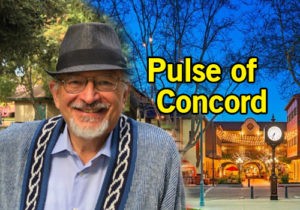Hoping for compromise on $7 million for non-profits
 CONCORD, CA (Mar. 17, 2023) — When the Concord City Council decided to put $7 million out of its $19 million American Rescue Plan Act funds (federal pandemic money) into a category for non-profits, this was after considerable outreach and input from the community.
CONCORD, CA (Mar. 17, 2023) — When the Concord City Council decided to put $7 million out of its $19 million American Rescue Plan Act funds (federal pandemic money) into a category for non-profits, this was after considerable outreach and input from the community.
I proposed that it go to the Community Services Commission, which is traditionally a political-free zone, and we would respect what they decided. This was rejected 4-1. The second idea of having all five councilmembers go through the decision process was also rejected.
Instead, it was decided that there would be an Ad-Hoc committee of two councilmembers to do all the interviews, research, discussion and the like and come to the council.
After months of work and three days of direct interviews and subsequent discussion, they went over 70 applications and recommended 22. What that means is that 48 non-profits were disappointed – not a good look for anyone in politics.
The companies that were turned down cover the whole range of services, dealing with tragedies as well as preventive care to avoid them.
Under the Brown Act, the remaining three councilmembers are prohibited from discussing the issue with the Ad Hoc committee in their months of work – or anytime. With high needs and limited funds, this was a recipe for problems.
On the one hand, any councilmember wants to do something for their favorite non-profit as well as balancing what is best for the community. That’s the exact pressure the Ad-Hoc committee was under.
On the other, after appointing a group to do a deep dive on the totality and specifics of the applications, how do we respect that work that we delegated them to do?
If we were to go over every single line item and decide in a night what to do, why then did we assign it to an Ad Hoc group – only to ignore their work? Likewise, we could not duplicate the interview process and discussions that the Ad Hoc committee did.
As an attempt at a compromise, I offered that we take $350,000, which was 5% from all the recommended 22 groups, and assign one-third to each of the three councilmembers who were not on the Ad Hoc. That would be $116,666+ to distribute as they individually saw fit.
This was a way to give to various needs that were not addressed by the Ad Hoc, while at the same time respecting their work on the 22 others. This was especially important because two of the three non-Ad Hoc members expressed that they had four to six of the 48 declined that they wanted to help.
Personally, I fully expected that the Rainbow Community Center would get a substantial amount of the $350,000 – with maybe $150K going elsewhere here and there.
Unfortunately, the compromise was rejected even after I informed the council that the alternative would be that the full 22 recommended would be voted in without adjustment.
We can play out “what ifs,” but the reality is that given a straight choice, the compromise was turned down. So, congratulations to the 22 and I am very sorry for the 48, but I tried to get something going to you.
Edi Birsan is a member of the Concord City Council. However, opinions expressed in this column are his alone and do not reflect those of the city. Send comments and questions to EdiBirsan@gmail.com.
